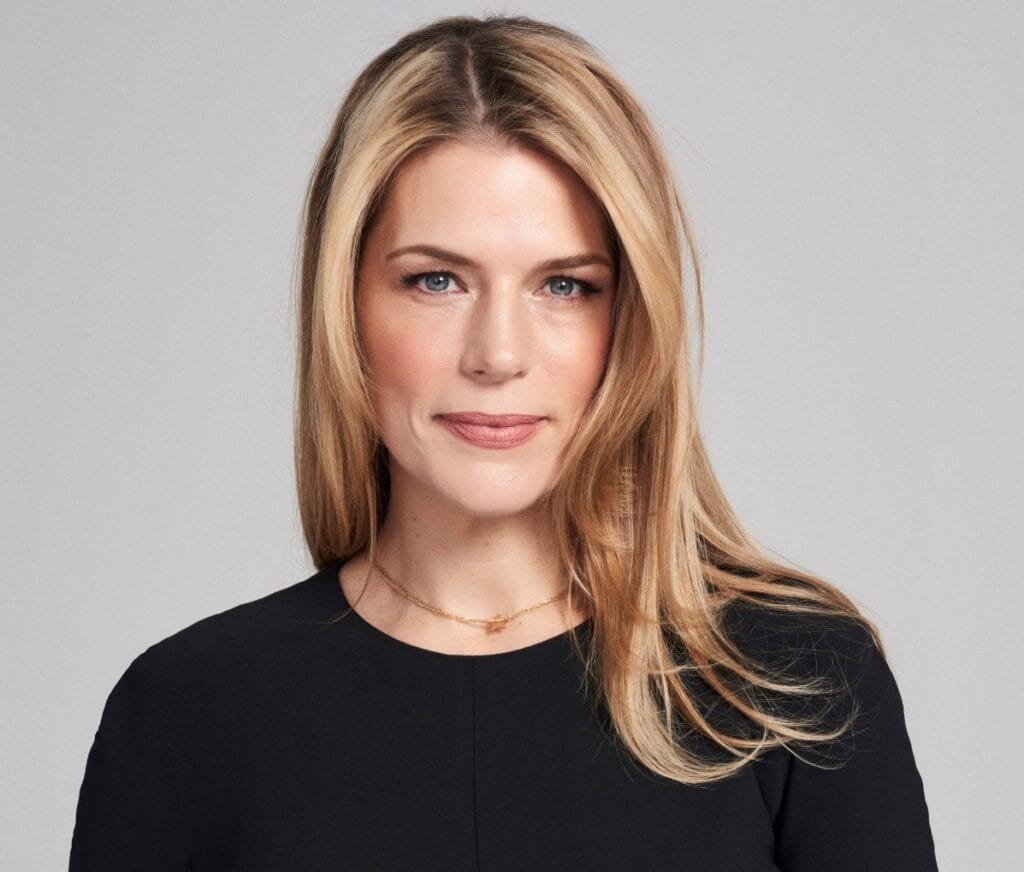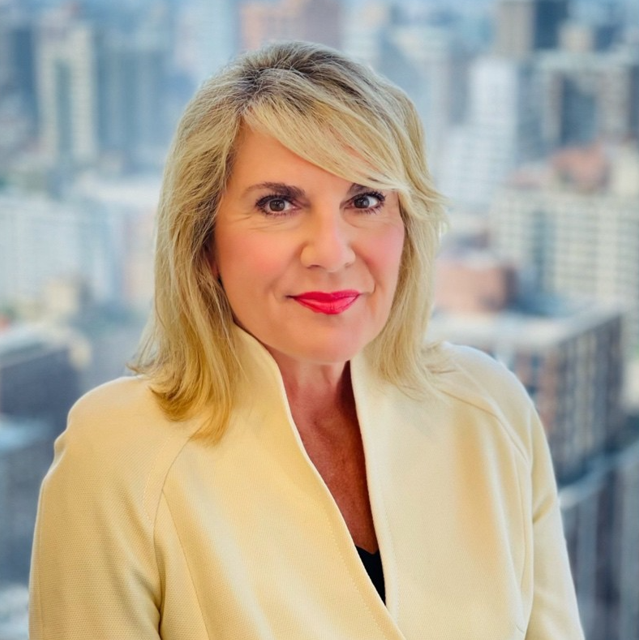Several years ago, I interviewed Alison Moore, CEO of Comic Relief US, in an interview originally published in Thrive Global. Here is an excerpt from our interview:
Adam: What is something about you that would surprise people?
Alison: The thing that will perhaps surprise people is that I took four languages in school: Spanish, French, Russian, and German. Today, however, the thing that will likely (and sadly) not surprise people is that I only speak English fluently.
Adam: How did you get here? What experiences, failures, setbacks, or challenges have been most instrumental to your growth?
Alison: Early on I remember my father saying to me: “You have to chart your own course. Don’t ever burn bridges but keep your eye on the path.” This has stuck with me throughout my career.
I graduated from college in 1992 with a degree in political science. At the time, the economy was in the midst of a recession, and I somewhat naively thought that I could simply get a job on Capitol Hill. Realizing that politics might not be the best path for me and faced with a bleak economic outlook, I took my father’s advice and started to network. Through a friend, I eventually managed to land a job at Turner in Atlanta. I had no business experience, and as a poli-sci major, I really had no idea about how media and entertainment worked. The first few months were challenging, scary, and nerve-wracking all wrapped into one, but that experience laid the groundwork for my career in the media industry across HBO, NBC, SoundCloud, and Conde Nast.
Another challenging but critical moment in my career was when I decided to take a chance and leave HBO for DailyCandy. My team at DailyCandy was phenomenal, but for reasons that were out of our control, the business was eventually shut down when we couldn’t top a certain revenue level. At the time I thought: I’ve put all this effort and energy into this job so why wasn’t that enough? I learned then that despite believing in your ability and that of your team, some events in business are simply out of your control. That was a particularly tough but valuable lesson to learn.
Thankfully, my family has always instilled a mentality in me of “if you get knocked down, get back up, dust yourself off, take stock of what happened, and then move on” and that’s what I did. That mindset has helped me build a level of resilience for which I am now quite grateful.
Adam: In your experience, what are the defining qualities of an effective leader? How can leaders and aspiring leaders take their leadership skills to the next level?
Alison: I’ve found that maintaining consistency, calmness and an authentic presence in the face of chaos are all critical qualities of an effective leader. Embodying these attributes can help inspire teams to achieve greater outcomes and push through difficult times. A good leader is also willing to fight against their comfort zone and have the humility to know what you don’t know.
When leading an organization, your own professional background is not always going to align with that of the teams you’re overseeing. However, a strong and secure leader resists the temptation to give greater face time or attention to teams they feel naturally/professionally aligned with and instead works to understand the value that each team in the organization brings to the table.
Adam: What are your three best tips applicable to entrepreneurs, executives, and civic leaders?
Alison: I’m going to give a tip for each because I think all three are unique but also connected in a way.
One of the best things about entrepreneurs is their passion and energy. Those two qualities can move mountains and make the seemingly impossible happen in the start-up space. However, enthusiasm has to be paired with a commitment to deep understanding of the data and metrics of growth. If not, even the most passionate leaders will lose traction over time.
It’s important that executives possess a unique mixture of emotional and operational skill and fortitude. The balance of these attributes enables an executive to not only be an effective “bottom-line” leader but to also be thoughtful on how they lead. As a CEO, having self-awareness of the “how” is critically important, and it serves as a model for other leaders within your organization.
Civic leaders need to have the passion and energy of the entrepreneur paired with the discipline and pragmatic mindset of an executive. The combination of these traits can help public servants reach their goals and support the public good while simultaneously helping them to overcome the bureaucratic hurdles they must face on a regular basis.
Adam: What is your best advice on building, leading, and managing teams?
Alison: An effective leader must understand the diversity of needs and personalities within their teams. Every executive has their own management style, but leaders must also be willing to be flexible by striking a balance between showing people the “right way” and providing enough autonomy so those under them can really contribute to all aspects of the work. This engenders trust and is perhaps the most important building block to a truly collaborative and dedicated team.
For leaders at the head of multiple teams or an entire organization, how they manage across those teams may differ. However, the ability of a leader to create synergies between various teams is of paramount importance. I’d say my most successful (and proud) work days are when two very different teams feel as if they were given the support necessary to effectively collaborate and achieve something of material impact together for the organization.
Adam: What are your best lessons on leading during times of crisis?
Alison: When you’re leading during a crisis, it’s critical to be empathetic, open, and focused all at once. As the leader of an organization, you’re seen as the common denominator; people are going to look to you for consistent communication, for clear direction, and as much transparency as possible. This is especially true for leaders in the midst of COVID-19, and with the pandemic, my team and I have had to navigate a new “normal” together. During this time, I’ve focused on strengthening trust and adjusting to new ways of communicating while working to stabilize our immediate business and operations to ensure that our organization remains laser-focused on our mission and future goals, which is more important than ever right now.
Adam: What is the single best piece of advice you have ever received?
Alison: The best advice I’ve ever received, from my best friend who is a brilliant business person in her own right, is to focus on the highest impact areas; hit that list first and the rest will fall into place. It may sound basic, but when so many things are rapidly changing, and you’re responding to a multitude of different needs at once, it can be overwhelming to figure out where to focus first. I find that this feeling is exacerbated in today’s world. We’re constantly bombarded from all sides at all hours of the day via multiple platforms, with what seems to be the same level of urgency. When I’m feeling overwhelmed, I remember that very simple piece of advice and get to a focused path of work, which often results in a productivity domino effect.
Adam: How can anyone pay it forward?
Alison: After my beloved father passed away, which was truly a ground-shattering moment for me, I took ten months off to try and figure out what I wanted to do next and where I wanted to spend my time. I recognized then, as we all do at some point, just how very short our time can be. During this period, I was touched and inspired by the number of people who reached out to offer support and guidance – many of whom I would have never expected.
The willingness of people to help left a lasting impression on me. Since then, I’ve tried to make myself as accessible as possible to others – whether that’s offering professional or personal advice, simply meeting for a coffee, or taking the time to respond to a LinkedIn message. I am not always successful in connecting with everyone, but I try to make it a priority. In this incredibly hectic world, it’s so important not to lose sight of our own power to help others. You’d be surprised how big of an impact you can make by just taking five minutes to lend a hand.









